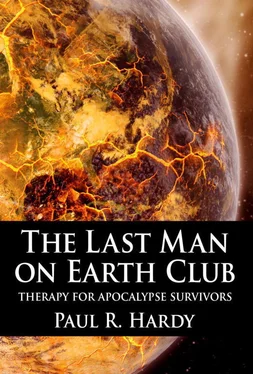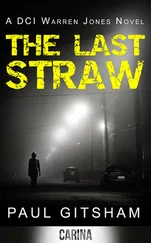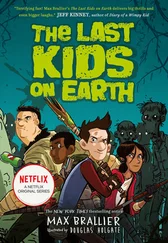“Is that Asha Singh? Why isn’t she at that centre?” demanded Henni.
“My night off, ma’am. I was at a restaurant.”
“So you don’t know what’s going on out there?”
“I came here to find out.”
“Well then, find out! Get on with it! Go!”
Mykl shrugged helplessly. I left as Henni started lecturing him on what he needed to do until she could get back. As Bell trailed behind me, I took over the office next door and keyed it to my own account and clearances.
“I need to check on some things,” said Bell.
“Do you need me to do anything?” I asked.
“No,” he said. “I’ll ask outside. Look after yourself.”
He left me there in the office, frantically trying to patch a microwave link through to the centre. I didn’t see him pause there, not sure of what to say; I barely even noticed him go as I reached out to try and find out what was happening.
When I did, it was more than I could bear.
The medical team followed Liss’s trail. She’d had no trouble finding her way in the dark but hadn’t bothered to go around obstacles; when she could, she simply went through. And when they got close, there was the glow of the fires from the crash to show them the way.
They found Iokan tending to Liss, who was unconscious with terrible burns on her arms, her hair scorched and mangled. Iokan was covered in soot and singed but clearly hadn’t attempted whatever Liss had tried to do.
“She needs help!” he cried, his voice cracking from smoke inhalation, and the medics went to her.
“What about the passengers?” asked Lomeva.
“Two!” said Iokan. Olivia suddenly gasped awake, coughing. “Olivia and Veofol.”
“Where is he?”
Iokan shook his head and pointed back at the burning wreckage of the bus. “Liss pulled Olivia out. She couldn’t get to Veofol. I had to drag her out…” He was forced to stop for a moment as a retching cough took over. Once it died, he gasped words at Lomeva again.
“I couldn’t help him.”
The flow of data did not return that day, or the next, and stayed silent as long as the lightning flashed across the sky. It was only a week later that the atmosphere cleared and limited data service was restored. Despite the loss of most of our communications, the rumour factories jumped into action as soon as people stopped running and realised the world wasn’t ending. Was it aliens with vastly superior technology? The remnants of the last attempt at an interversal organisation rising in revenge? Massive incompetence by penny-pinching bureaucrats? No one knew, at first. But the answer was soon discovered, and the truth disseminated across Hub Metro by voice, by billboard, by broadsheet newspaper, by any method that could be found.
We had been attacked. The device that lit up the sky, and which kept it on fire with electromagnetic discharge for a week after, was one used in a war between machines and AIs in another universe fifty years before, which seeded the upper atmosphere with EMP detonators. Radio communications were rendered impossible to use, save for higher energy microwave bands, and unshielded electrical devices were rapidly destroyed. A few older types of implants burnt out inside people’s bodies, causing severe injuries. The constant barrage could even affect some shielded machinery, and power transmission had been the first thing to fail.
Most of the fatalities came in the immediate aftermath of the attack, as the computers on gravity flyers burnt out, leaving their human pilots to manage by themselves — something most of them weren’t ready for. Without computer assistance, the subtleties of the Earth’s own gravity field have to be compensated for manually, and that takes skill.
I remember the feeling then, in the days I was stranded in Hub Metro before a qualified pilot could be found to take me back to the centre: no one could believe we would be targeted. How could we be attacked? Why would anyone want to come after us? What had we done to hurt anyone? The certainties we all shared shifted under our feet and the multiverse looked like a more dangerous place. Hundreds of groups on dozens of worlds claimed responsibility for the attack. All they shared was a dislike of IU interference in their affairs. For some of them, we had done too much. For others, we had done too little. Altogether too many people were quietly happy to see our noses rubbed in the same dirt they had to live with.
The truth, when it was eventually uncovered, was hardly a surprise. Anti-AI extremists had built the weapon on Hub to designs smuggled in from a world seething at the price they’d paid for IU membership and assistance — being forced to live alongside the AIs they’d been trying to eliminate for decades. AI species on Hub were the most affected, and had suffered the greatest loss if they were not backed up inside an EM cage. Several individual AIs caught outside were destroyed completely, and one embassy whose EM cage failed was completely wiped out. Their trust in the IU was shaken for years to come.
The IU had taken a terrible beating, and no one knew yet what it would do when it roused itself from the shock — whether it would carry on as it was, or change into something none of us would recognise.
Bell called me once more, from the port city at the base of the Lift. None of the facilities in orbit had been affected by the attack, and a number of worlds were withdrawing their citizens from Hub in a knee-jerk reaction. Bell took the opportunity while it was there and got away weeks before he’d originally planned.
I didn’t cry for Bell. I’d already accepted he was gone. I cried when I realised that, as Veofol’s line manager, I owed his family a letter informing them of his death while on duty. His species’ consulate had already notified them, of course; but they had not been working alongside him for the last two years, as I had. So it fell to me to offer them some kind of comfort and an assurance that he had been incredibly talented, and was a loss not just to his species, but to all of us. To Hub. To the group. To me.
I noticed a change in the staff when I returned to the centre. Many had grown tired of what they saw as the group’s petulant determination to suffer in the face of comfort and freedom on Hub. But now they’d discovered the merest taste of what the group had endured, and turned to them for support. A dozen times, I saw a security guard or a nurse, or even the groundskeeper, talking with one of the patients. Olivia would tell them to buck their ideas up and put their backs into rebuilding. Iokan hoarsely encouraged them to bear it and keep going despite the pain. The others simply didn’t know what to say, or kept their thoughts to themselves. I myself was pestered, especially by one security guard whose wife was missing, and presumed dead. As I had been in Hub Metro that night, he was desperate for any clues I might have had. In the end, I had to transfer him to another centre where he could receive the therapy he needed.
I tried to bring the group together for a therapy session, but it proved impossible. Liss was still in a coma as her body healed her burns. Iokan strained his voice and was ordered to stay quiet, though he kept ignoring the advice and hurting himself further. Kwame and Pew had their own traumas that kept them in their rooms. So I ended up with an almost-silent Iokan and Olivia as my therapy group, and even she was quieter than usual. But at least she gave up on her demand to leave. She muttered that nowhere was safe now, so what was the point? And I had no answer to that.
Читать дальше












